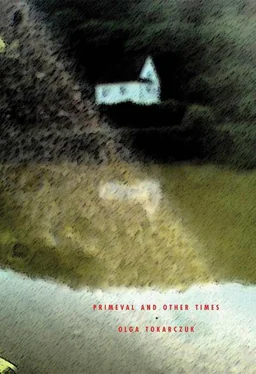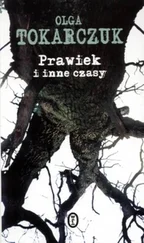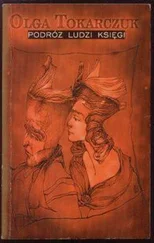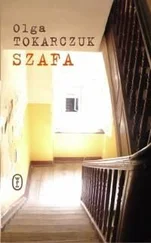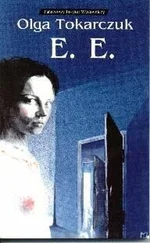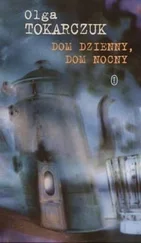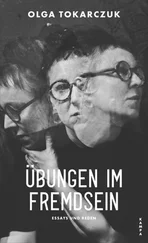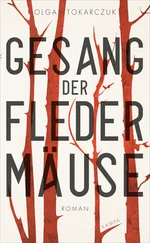“I forgive you, Moon. I forgive you for all the wrong you have done me!” she cried, loud and shrill.
Suddenly, from out of nowhere, from over the Black River a breeze sprang up and ruffled the old woman’s grey locks. A light came on in one of the houses and a man’s voice shouted:
“Shut up, woman! We’re trying to sleep.”
“So go to sleep, sleep yourselves to death!” shouted Cornspike over her shoulder in reply. “Why on earth were you born if you’re only going to sleep?”
“Don’t go to the village, or you’ll get into trouble,” Cornspike would say to her daughter. “Sometimes I think they’re all drunk there – they’re so slow and lumbering. They only liven up when something goes wrong.”
But Ruta felt drawn to Primeval. There was a mill there, and a miller and his wife, there were poor farmhands, there was Cherubin, who pulled teeth with pincers. There were children running about, just like her. Or at least they looked the same. And there were houses with green shutters, and white linen drying on the fences, which was the whitest thing in Ruta’s world.
As she walked through the village with her mother, Ruta could feel everyone looking at them. The women shaded their eyes from the sun, and the men furtively spat. Her mother took no notice, but Ruta was afraid of their glances. She tried to keep as close to her mother as she could, squeezing her big hand as tightly as possible.
In the evenings, in summer, when the bad people were already sitting at home busy with their own affairs, Ruta liked to go to the edge of the village and gaze at the solid grey cottages and the bright smoke from their chimneys. Later, once she had grown a bit, she felt brave enough to creep right up to their windows and peep inside. At the Serafins’ there were always small children crawling about the floorboards. Ruta could watch them for hours, as they stopped over a little bit of wood, tasted it on their tongues, and turned it over in their chubby paws – she watched as they put various objects in their mouths and sucked them, as if it were candy, or crawled under the table and spent ages staring in wonder at the wooden table sky.
Finally the people would put their children to bed, and then Ruta would inspect all the things they collected: dishes, pots, knives and forks, curtains, holy pictures, clocks, tapestries, flowers in pots, frames with photos, patterned oilskin tablecloths, bedspreads, baskets, all those little objects that make people’s houses unique. She knew all the objects in the village and she knew whom they belonged to. Only Florentynka had white net curtains. The Malaks had a set of nickel cutlery. Young Miss Cherubin crocheted beautiful cushions. At the Serafins’ there was a huge picture on the wall of Jesus teaching from a boat. Only the Boskis had green bedspreads with roses on them, and later, when their house right by the forest was almost ready, they started bringing real treasures into it.
Ruta took a liking to this house. It was the biggest and the most beautiful. It had a sloping roof with a lightning conductor and windows in the roof, it had a real balcony and a glazed porch, and there was also a second, kitchen entrance. Ruta found herself a place to sit in a large lilac tree, from where she could watch the Boskis’ house in the evenings. She saw a soft, new carpet being laid in the biggest room, as gorgeous as the floor of an autumn forest. She was sitting in the lilac when the big grandfather clock was carried in, with its heart swinging this way and that, measuring out the time – the clock must have been a living creature, because it moved of its own accord. She saw the toys belonging to the little boy, Misia’s first son, and then the cradle that was bought for the next child.
And only once she was familiar with each thing, right down to the smallest object in the Boskis’ new house, did she turn her attention to the boy her own age. The lilac tree wasn’t tall enough to let her see what the boy was doing in his room in the loft. She knew he was Izydor and that he wasn’t like other children. She didn’t know if that was good or bad. He had a big head and his mouth hung open, letting saliva dribble onto his chin. He was as tall and thin as a reed in the pond.
One evening Izydor caught Ruta by the foot as she sat in the lilac tree. She pulled free of him and ran away. But a few days later she came back, and he was waiting for her. She made room for him next to her among the branches. They sat there all evening and didn’t say a word. Izydor watched life going on in his new home. He saw people moving their lips, without hearing what they were saying. He saw them wandering in confusion from room to room, into the kitchen and into the pantry. He saw little Antek crying soundlessly.
Ruta and Izydor liked being silent together in the tree.
Now they started meeting every day. They would disappear from people’s sight. They would go through a hole in the fence into Malak’s field and walk down the Wola Road towards the forest. Ruta picked plants from the roadside verge: carob pods, goosefoot, oregano, and sorrel. She shoved them under Izydor’s nose for him to sniff.
“You can eat this. And this. This one, too.”
From the road they watched the Black River, a shining fissure right down the middle of the green valley. Then they passed a milkcap copse, dark, smelling of mushrooms, and went into the forest.
“Let’s not wander off too far,” protested Izydor at first, but then he put himself entirely in Ruta’s hands.
It was always warm and soft in the forest, like in the velvet-lined box where Michał’s medal was kept. Wherever you lay down, the bed of pine needles on the forest floor would sag gently, making a hollow that fitted the body perfectly. Above was the sky, overtopped by the tips of the pine trees. It was fragrant.
Ruta had lots of ideas. They played hide-and-seek and tag, pretended to be trees and made various figures out of twigs, sometimes as small as a hand, sometimes large, taking up a patch of the forest. In summer they found whole clearings yellow with chanterelles and examined sedate mushroom families.
Ruta loved fungi more than plants and animals. She described how the real mushroom kingdom is hidden under the earth, where the sun doesn’t reach. She said that only mushrooms that are condemned to death or exiled from the kingdom as a punishment come out onto the earth’s surface. Here they perish from the sun, at the hand of man, or trodden by animals. The real underground mushroom spawn is immortal.
In the autumn Ruta’s eyes became yellow and piercing like a bird’s, and then she would go mushroom hunting. She would say even less than usual, and Izydor thought she seemed absent. She knew all the spots where the spawn came out onto the earth’s surface, where it extended its tentacles into the world. When she found a penny bun or a birch bolete, she lay down next to it on the ground and spent a long time examining it before venturing to pick it. But Ruta loved amanitas best of all. She knew all their favourite glades. There were the most amanitas in the birch wood on the other side of the Highway. That year, when the divine presence was especially clearly felt in all Primeval, the amanitas appeared at the beginning of July and covered the birch glades in their red caps. Ruta skipped among them, but being careful not to destroy them. Then she lay down in between them and peeped under their red dresses.
“Watch out, they’re poisonous,” Izydor warned her, but Ruta laughed.
She showed Izydor various amanitas, not just red ones, but white, greenish, or the kind that imitate other mushrooms, horse mushrooms for example.
“My Mama eats them.”
“You’re lying, they’re deadly poison,” said Izydor resentfully.
Читать дальше
